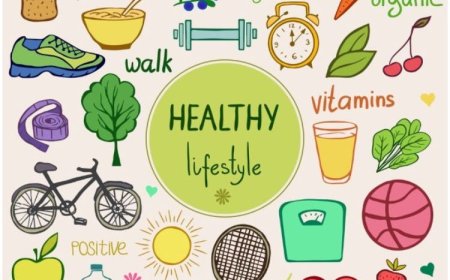The Importance of Understanding Calories for a Balanced Diet
Introduction Calories are a fundamental component of nutrition, and understanding their role is crucial for maintaining a balanced diet. Knowing how many calories you need and where they come from can help you make healthier food choices and achieve your wellness goals. In this blog, we'll discuss the importance of understanding calories and provide tips for maintaining a balanced diet.

Why Calories Matter
Calories provide the energy your body needs to function. Every activity, from breathing and sleeping to exercising and thinking, requires energy. The number of calories you need depends on various factors, including your age, gender, weight, height, and activity level.
Daily Caloric Needs
1. Basal Metabolic Rate (BMR)
Your BMR is the number of calories your body needs at rest to maintain basic physiological functions like breathing, circulation, and cell production. It's influenced by factors such as age, gender, and body composition.
2. Physical Activity Level
Your level of physical activity significantly impacts your daily caloric needs. More active individuals require more calories to fuel their activities compared to those with a sedentary lifestyle.
3. Total Daily Energy Expenditure (TDEE)
TDEE is the total number of calories you burn in a day, including BMR and physical activity. Understanding your TDEE can help you determine how many calories you need to maintain, lose, or gain weight.
Sources of Calories
Not all calories are created equal. The quality of the calories you consume is just as important as the quantity. Calories come from three main macronutrients: carbohydrates, proteins, and fats.
1. Carbohydrates
Carbohydrates are the body's primary source of energy. They are found in foods like fruits, vegetables, grains, and legumes. Aim to choose complex carbohydrates, such as whole grains, which provide sustained energy and essential nutrients.
2. Proteins
Proteins are essential for building and repairing tissues, making enzymes and hormones, and supporting overall health. Good sources of protein include lean meats, fish, eggs, dairy products, beans, and nuts.
3. Fats
Fats are necessary for energy, hormone production, and nutrient absorption. Choose healthy fats, such as those found in avocados, nuts, seeds, and olive oil, while limiting saturated and trans fats.
Tips for a Balanced Diet
1. Eat a Variety of Foods
Incorporate a wide range of foods in your diet to ensure you get all the essential nutrients. Include fruits, vegetables, lean proteins, whole grains, and healthy fats.
2. Control Portions
Be mindful of portion sizes to avoid overeating. Use smaller plates, measure your food, and pay attention to hunger and fullness cues.
3. Limit Processed Foods
Processed foods often contain added sugars, unhealthy fats, and empty calories. Focus on whole, minimally processed foods for better nutrition.
4. Stay Hydrated
Drinking enough water is essential for overall health and can help control hunger. Sometimes, thirst is mistaken for hunger, leading to unnecessary snacking.
5. Plan Your Meals
Planning your meals and snacks ahead of time can help you make healthier choices and avoid impulsive eating. Prepare balanced meals that include a variety of food groups.
6. Practice Mindful Eating
Mindful eating involves paying full attention to the experience of eating and drinking. It helps you enjoy your food more and recognize when you're truly hungry or full.
Conclusion
Understanding calories and their role in your diet is crucial for maintaining a balanced and healthy lifestyle. By focusing on the quality and quantity of the calories you consume, you can make informed choices that support your overall well-being. Remember, a balanced diet includes a variety of nutrient-dense foods, controlled portions, and mindful eating practices. Stay informed and enjoy the journey to better health!
What's Your Reaction?


























































































